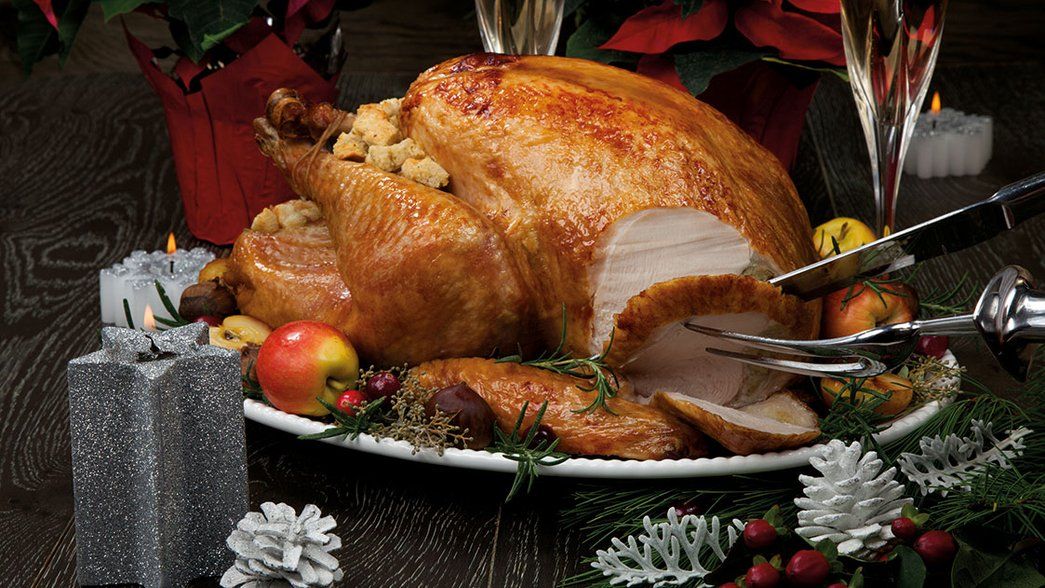Many religious festivals are strongly associated with food, and during the festive season we often buy and consume more of it – with the traditional Christmas dinner taking pride of place.
Unsurprisingly, the good old-fashioned turkey features among the best-sellers, with more than ten million being consumed in the UK alone. Then there’s the Christmas pudding, with 25 million being sold each year. Once you add accompaniments, that’s an awful lot of food.
But have you ever considered the impact of your feast? While not wishing to ruining anyone’s appetite, we would urge you to consider the effect all this indulgence has on our planet. It has been estimated that a full traditional Christmas dinner with turkey and pigs in blankets is responsible for around 1.5kg of CO2 per plate.
We have talked about the impact that meat has on the environment, and how reducing the amount we eat can be an effective way to reduce our individual carbon footprints. Buying local is also a great way to also reduce emissions from food, so finding a good local farmer, or at least British and organically sourced, is a great way to ensure we have the food we love, but at a lower cost to our planet.
And when the days of turkey-derived lunches – ranging from sandwiches to curry – are over, the way food waste is dealt with is another important part of reducing our impact. Like many homes and businesses, Arsenal has been separating its food waste across all of its sites for several years. Anaerobic digestion (AD) is a natural process in which plant and animal materials are converted into useful products by micro-organisms in the absence of air. The process releases biogas, (mainly a mixture of around 60% methane and 40% carbon dioxide) which can be used directly to provide heat, power or transport fuel.
Biogas can also be purified by removal of the carbon dioxide to produce biomethane, which can be fed directly into the public natural gas grid in the same way as natural gas, or used as a vehicle fuel. The types of materials suitable for AD include food waste, slurry and manure, crops and crop residues. But don’t let that put you off your Christmas lunch!
Did you know…?
47
recycled teabags can generate enough electricity to power a TV for 70 minutes
2
banana skins can provide charge for up to three smartphones
1
caddy full of food can generate enough electricity to power a fridge for 12 hours
8
caddies of food waste could generate power to a DJ set for an hour – worth considering if you’re planning a New Year party!
6
teabags can provide enough energy to boil a kettle
32
banana skins can power a typical family home for up to an hour
22
teabags can power a vacuum cleaner for ten minutes
Copyright 2024 The Arsenal Football Club Limited. Permission to use quotations from this article is granted subject to appropriate credit being given to www.arsenal.com as the source.










